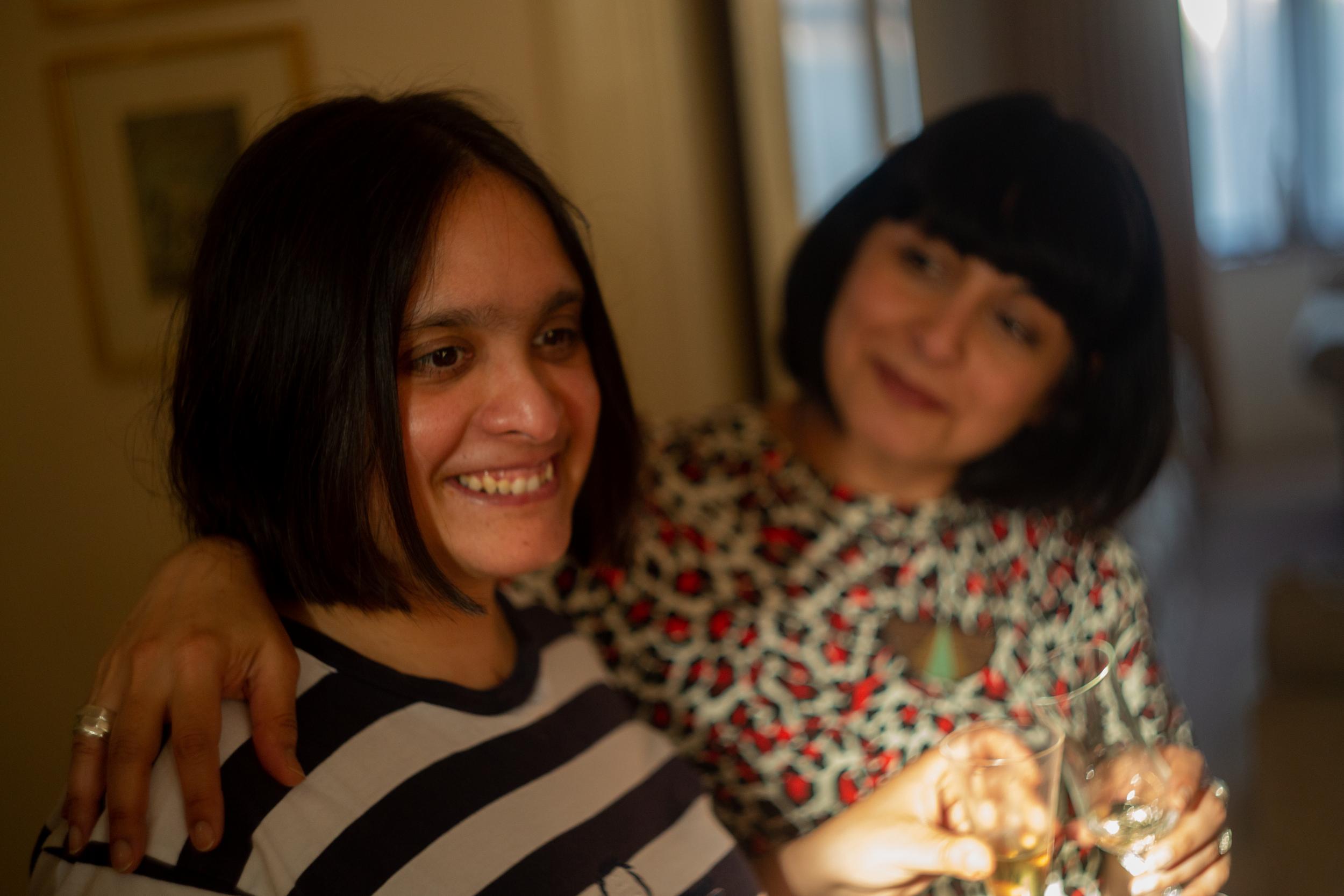While everyone else emerges from lockdown, my learning disabled sister has been left in limbo – and I'm worried for her future
The government’s guidance on coronavirus for supported living settings has been ‘under development’ since mid-May. We still don’t know if Raana or her carers should be wearing PPE or tested for Covid-19


Your support helps us to tell the story
From reproductive rights to climate change to Big Tech, The Independent is on the ground when the story is developing. Whether it's investigating the financials of Elon Musk's pro-Trump PAC or producing our latest documentary, 'The A Word', which shines a light on the American women fighting for reproductive rights, we know how important it is to parse out the facts from the messaging.
At such a critical moment in US history, we need reporters on the ground. Your donation allows us to keep sending journalists to speak to both sides of the story.
The Independent is trusted by Americans across the entire political spectrum. And unlike many other quality news outlets, we choose not to lock Americans out of our reporting and analysis with paywalls. We believe quality journalism should be available to everyone, paid for by those who can afford it.
Your support makes all the difference.Most of us are now emerging from lockdown and acclimatising to the “new normal” we find ourselves living in. From this week, we can go to a beauty salon or gym, and care homes visits are on the horizon.
But my learning disabled sister, Raana, is untouched by the easing of restrictions. Raana lives in supported living, in a shared house in Hampshire with help from care staff during the day. Thanks to a lack of any government guidance on coronavirus for supported living, she’s living in a parallel universe.
Without clear rules on what she should or should not be doing, her carers are – understandably – keeping tight restrictions on her movements. Raana is in lockdown limbo.
Of course I worry endlessly about the emotional impact this prolonged isolation will have on her, and the very real risk that the progress she has made towards independence will now start to unravel. But the issue is far bigger than that: learning disabled people, their families and campaigners have had a hard-won fight for greater rights and visibility – and now, thanks to coronavirus, that’s all under threat.
The government’s guidance on coronavirus for supported living settings has been “under development” since mid-May, in contrast to care homes guidance, published three months ago and already updated at least once. There are still no specific rules over whether Raana or her supported living carers should be wearing personal protective equipment (PPE), or subject to regular testing for Covid-19. There is no official protocol on balancing essential family contact with household isolation or social distancing in a shared house, especially for those with underlying health conditions.
Lawyers are challenging the lack of guidance. The Department of Health and Social Care has until 20 July to respond to a letter from solicitors Rook Irwin Sweeney. The lawyers argue that the failure to issue and maintain guidance is “irrational, discriminatory” and in breach of the human rights of disabled adults in supported living. As partner Alex Rook says: “Adults with a learning disability are being treated as an afterthought during the Covid crisis”.
This is all the more astonishing given that coronavirus intensifies the inequalities already experienced by the UK’s 1.5m learning disabled people. Death rates among learning disabled and autistic people have doubled during coronavirus, leading NHS England to promise an “urgent review”.
A recent survey by social care provider Dimensions of more than 80 learning disabled or autistic people who live in the community or in supported living shows that 65 per cent worry about their daily routine changing and 76 per cent worry about not being able to see their friends. The poll suggests 66 per cent are concerned about when things will go back to “normal”. A separate social media poll by the charity Sibs (of which I am a trustee) reflects the impact on families: of 117 adults with disabled brothers or sisters, 91 per cent said coronavirus makes their situation as a sibling more challenging.
I wholeheartedly agree. Not only is my family trying to manage my sister’s anxiety and uncertainty as her daily routine has vanished under lockdown, but when we do see her, it’s bittersweet. Without official advice, support staff are erring on caution’s side. Our outdoor visits are “facilitated” by staff to ensure social distancing. Although there is no outright ban on Raana visiting us or on us setting foot inside her house, for safety’s sake these are clearly discouraged.
As high streets, workplaces and neighbourhoods adapt to a world after lockdown, it is shameful that a certain section of our population – those people who need the most support from others – are excluded.
As Jordan Smith, who has a learning disability and works at Dimensions as a health equalities lead, argues: “I hope that, when the crisis is over, we as a society don’t forget how well we can adapt and use this lesson to make our communities better for people with learning disabilities.”
Saba Salman is the editor of ‘Made Possible: stories of success by people with learning disabilities – in their own words’, published by Unbound
Join our commenting forum
Join thought-provoking conversations, follow other Independent readers and see their replies
Comments